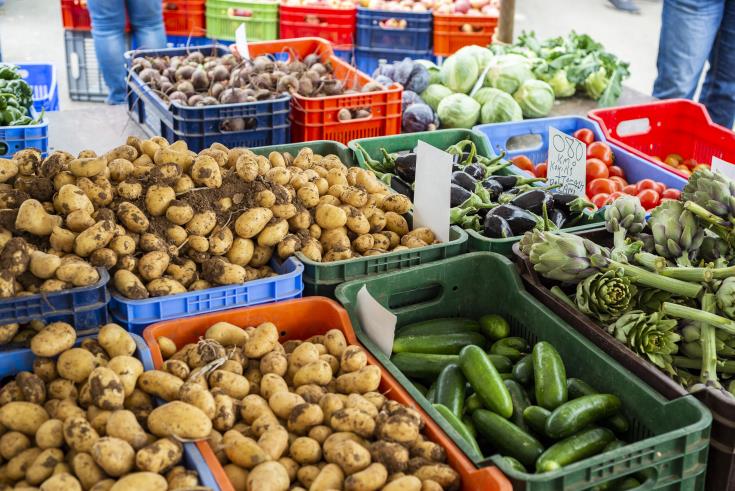Fruit and vegetable prices remain high this summer, the Cyprus Consumers Association said on Monday, as middle-men continue to put a large mark-up on items.
The latest findings confirm that little has changed since last summer, with retail prices continuing to soar even as producers prices have dropped.
According to the association, the gap between what farmers earn and what consumers pay is widening, raising concerns over profiteering within the supply chain.
Last year, the department of agriculture had acknowledged the issue and pledged to reduce the price gap between farm and shelf. However, to date, no such measures have been implemented.
The lack of action has allowed disproportionate profit margins to persist, directly challenging economic climate, the association.
President of the association, Marios Drousiotis said the latest market data was collected over the past three months, highlighting that significant price discrepancies remain in force.
“Producer prices have dropped to very low levels, with many goods remaining unsold,” he said, explaining that while online platforms such as the e-basket reflect more realistic prices, the actual farm-gate prices were even lower than those reported.
“In many cases, producers are selling below the cost of production,” Panagrotikos Farmers Union’s Kyriakos Kailashe said.
He pointed to recent examples: the price of potatoes dropped from €1,100 per tonne to just €500 due to overproduction, while watermelon prices plummeted from 60 cents per kilo to as little as 15 cents.
Although prices are falling for producers, shortages caused by extreme weather conditions are still driving retail prices up.
Kailas emphasised the broader challenges farmers face, including extreme temperatures which threaten large-scale crop destruction. “When there’s a shortage, supermarkets increase prices. But consumers shouldn’t be the ones paying for this exploitation,” he said.
“Exploitation is happening on both ends, producers are underpaid, and consumers overcharged,” he said.
Highlighting water scarcity and rising production costs, Kailas explained that many farmers are now relying on private boreholes, further inflating their expenses.
“This year is proving to be one of the hardest we’ve seen. I’m 67 years old and I’ve never experience that anything like this before,” he added.
When asked about possible interventions, Kailas admitted that in a free market, the only solution may be greater consumer awareness. “People need to know exactly who is charging what. Producers are working under difficult conditions year-round, but there’s no magic wand to fix this,” he said.






Click here to change your cookie preferences